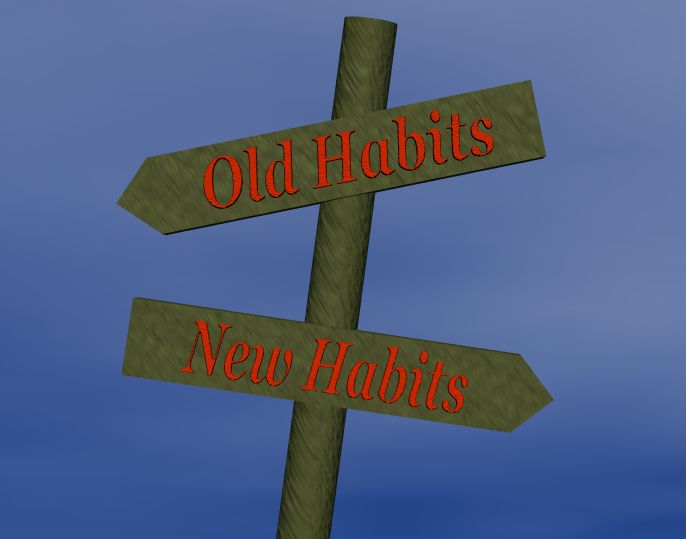
Once we habituate behavior, we find it is difficult to change. Once we create or accept responses based on our negative emotions, we often hold onto them and have difficulty giving them up. Once behavior becomes habitual, avoiding it becomes a challenge – even when we know it’s the right thing to do. Acting in the way we always have will obviously feel “natural” to us. But when we commit to and make a plan for changing that behavior, so that a new positive way of responding can take its place, that new behavior will soon become “natural.”
With hard work and practice, we can change our behavior. Forcefully, vigorously, and powerfully work at creating better thinking, healthier feelings, and more productive actions. Do this now, not later. For most people, it won’t take very long to no longer feel negative about many things. But keep working on change, you will always continue to improve, even if you never become absolutely perfect at responding in the desired way. And remember that increasing the effort you put into changing will shorten the time it takes you to do so.
Rehearsing a desired behavior is almost as good as doing the real thing. By repeating an action again and again, you create a new path in your brain and use it until the new response becomes habitual. Scientists refer to this as creating a new neural path. In this sense the brain doesn’t know the difference between “real” and “rehearsed” behavior. The process is similar to that of memorizing a poem or improving on your golf swing. The more times you practice (or rehearse) the poem, the swing, or the positive response, the closer you get to that behavior becoming automatic.
